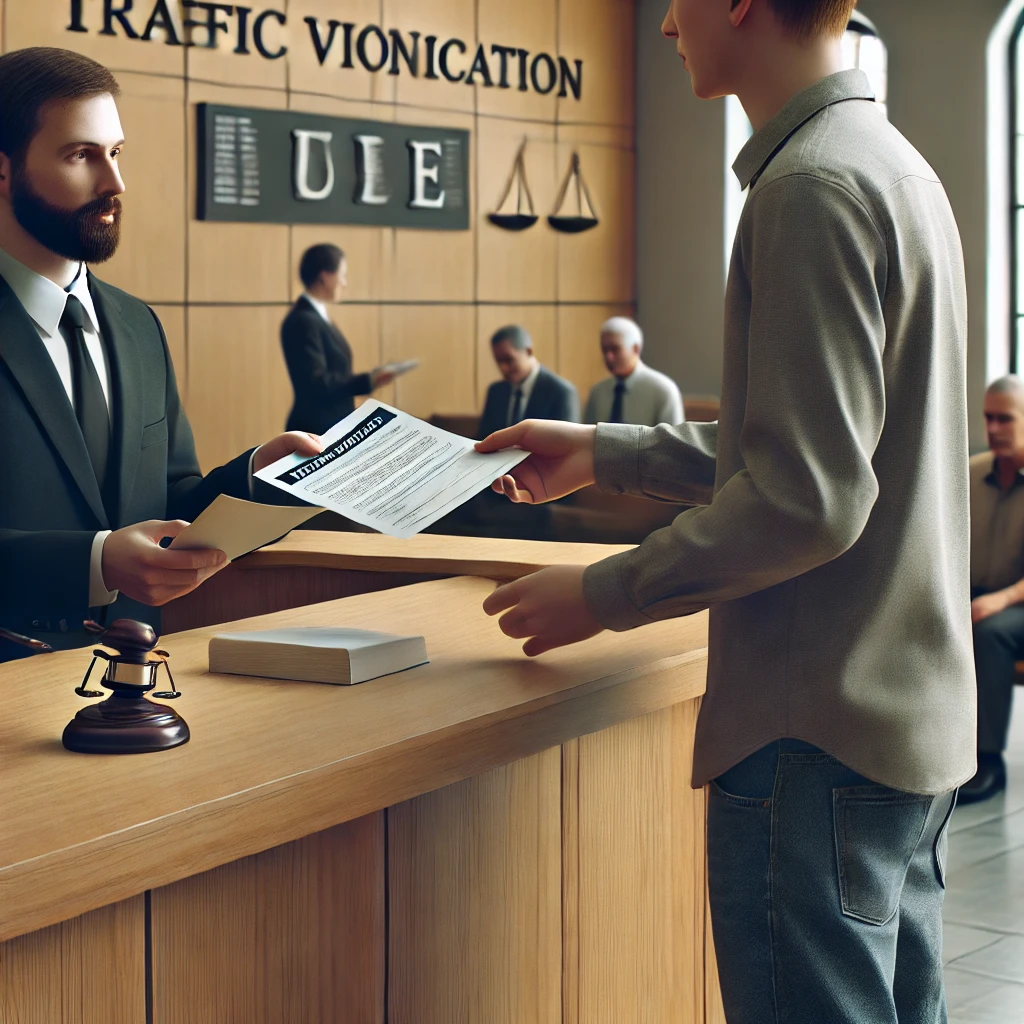Understanding the Traffic Violation Appeals Process

Appealing a traffic violation involves contesting the ticket in court or through an administrative process, depending on your jurisdiction. Here's a step-by-step guide to help you navigate the process:
1. Review the Ticket
Start by carefully reviewing the traffic ticket to understand the specific violation, the fines, and the court date. Ensure that all the information on the ticket is accurate, including your name, address, and vehicle details. If there are any errors, they could potentially help your case.
2. Decide Whether to Appeal
Consider the costs and benefits of appealing the ticket. If the fines and penalties are minor, it might not be worth the effort. However, if the violation carries significant fines, points on your driving record, or potential insurance rate increases, appealing may be worthwhile.
3. Gather Evidence
Building a strong case requires collecting evidence to support your appeal. This may include:
- Photographs: Take pictures of the location where the violation occurred, including traffic signs, road conditions, and any relevant landmarks.
- Witness Statements: Obtain written statements from anyone who witnessed the incident.
- Documentation: Gather any relevant documents, such as repair receipts if your vehicle had a malfunction that contributed to the violation.
- Video Evidence: If you have a dashcam, review the footage for any evidence that supports your case.
4. Prepare Your Case
Organize your evidence and prepare a clear, concise argument explaining why the ticket should be dismissed. Focus on the facts and avoid emotional appeals. Consider the following points:
- Traffic Laws: Research the specific traffic laws related to your violation and determine if there are any exceptions or nuances that apply to your situation.
- Precedents: Look for similar cases in your jurisdiction where the ticket was dismissed. This can strengthen your argument.
5. Request a Hearing
Follow the instructions on your ticket to request a hearing. This usually involves submitting a written request to the court or traffic authority. Be sure to meet any deadlines to avoid additional penalties.
6. Attend the Hearing
On the day of your hearing, arrive early and dress professionally. Be respectful and polite to the judge or hearing officer. Present your evidence clearly and concisely, and be prepared to answer any questions.
7. Cross-Examine the Officer
If the issuing officer is present, you will have the opportunity to cross-examine them. Ask questions that highlight inconsistencies in their testimony or raise doubts about their observations. Be respectful and focused on the facts.
8. Make Your Closing Argument
Summarize your case and reiterate the key points that support your appeal. Emphasize any evidence that casts doubt on the validity of the ticket.
What to Expect During the Appeals Process

The appeals process can vary depending on your jurisdiction, but here are some common elements:
- Administrative Hearings: Some traffic violations are handled through administrative hearings rather than court. These hearings are typically less formal and may involve a hearing officer rather than a judge.
- Court Hearings: For more serious violations, your case may be heard in traffic court. This is a more formal setting, and you may have the option to be represented by an attorney.
- Judgment: After hearing both sides, the judge or hearing officer will make a decision. If your appeal is successful, the ticket will be dismissed, and any fines or penalties will be voided. If the appeal is unsuccessful, you may be required to pay the fines and any additional court costs.
Tips for a Successful Appeal
- Be Prepared: Thoroughly prepare your case, gather all necessary evidence, and practice presenting your argument.
- Stay Calm and Respectful: Maintain a calm and respectful demeanor throughout the process, even if you disagree with the officer or judge.
- Consider Legal Representation: If you’re unsure about handling the appeal yourself, consider hiring an attorney who specializes in traffic violations.
- Know Your Rights: Understand your legal rights and the specific procedures in your jurisdiction. This knowledge can help you navigate the process more effectively.
Conclusion
Appealing a traffic violation can be a daunting task, but with careful preparation and a clear understanding of the process, you can increase your chances of success. By gathering strong evidence, presenting a well-organized case, and knowing what to expect, you can effectively contest a traffic ticket and potentially avoid fines, points on your driving record, and increased insurance rates.
For more information on traffic laws and penalties, visit Drive Rite NY. Stay informed, drive safely, and know your rights when it comes to traffic violations.